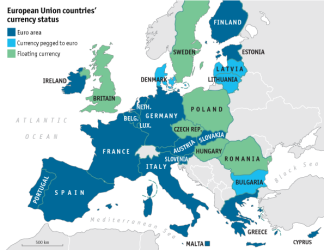By The Economist
THE euro crisis has eased since Mario Draghi, president of the European Central Bank (ECB), pledged in July 2012 to do “whatever it takes” to save the single currency. Sovereign debt yields in the troubled economies on the southern and western periphery of the 17-country euro zone have fallen sharply since the ECB made a commitment (subject to strict conditions) to buy without limit short-term government bonds of countries that apply for and get help from the euro area’s main rescue fund.
There has also been more rebalancing in the periphery than is generally appreciated. Current-account deficits which had ballooned in the first decade of the euro have narrowed in countries like Portugal and Spain. Ireland’s has returned to surplus. Primary budget balances (ie, before interest) – a crucial measure in determining the sustainability of public finances – have improved, with deficits shrinking and Italy’s returning to surplus.
Despite these improvements, government debt levels are now worryingly high in the periphery, with debt burdens (ie, as a share of GDP) above 100% in Greece, Italy, Ireland and Portugal. Greece’s, which now exceeds 175%, is easily the highest and will almost certainly require a further restructuring (to follow the writedown of over half of privately held debt in March 2012), this time of official loans, in order to reduce it to a sustainable level.


